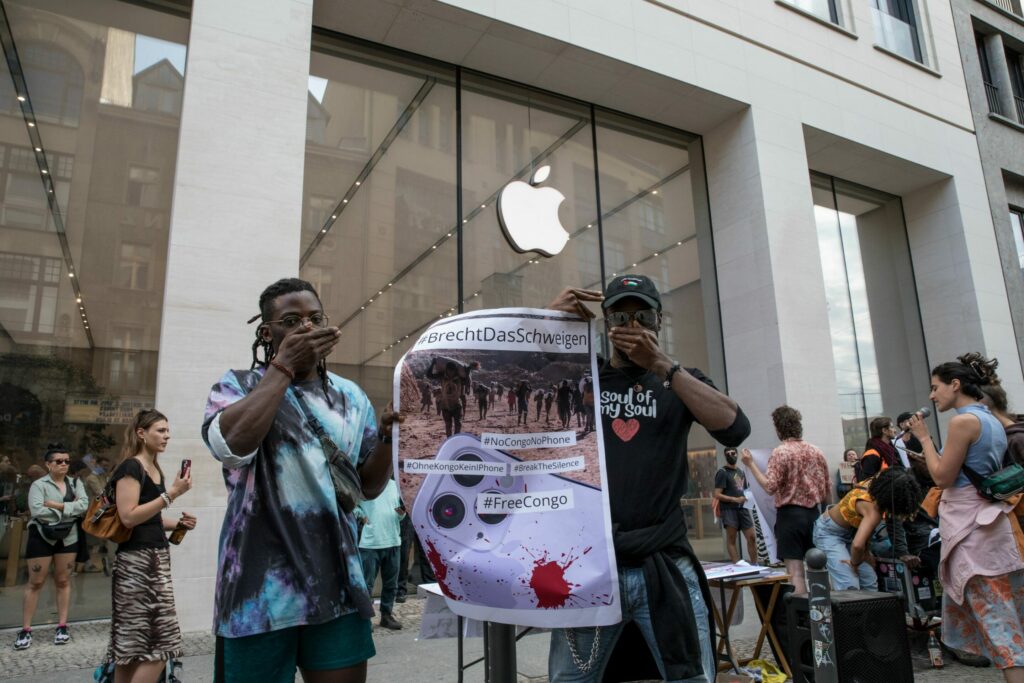The Democratic Republic of Congo (DRC) has filed complaints against subsidiaries of the American technology company, Apple, in Belgium and France, for using illegally mined and laundered "blood minerals" in its iPhones.
According to a press release by the law firm Amsterdam & Partners LLP on Tuesday, the DRC also alleges that Apple uses "deceptive commercial practices" to assure consumers that the tech giant’s supply chains are "clean".
The Congolese government is represented by a team of lawyers, including Christophe Marchand from the Brussels law firm Jus Cogens.
"These complaints filed against Apple are a matter of great public interest at a time when European countries, consumers and non-governmental organisations are increasing their scrutiny of international supply chains," Marchand stated in the press release.
The lawyers had already sent Apple a series of questions in April but reported receiving no detailed response. The complaints in Belgium and France are described as "the first salvo" of legal actions.
According to the statement, the lawyers representing DR Congo also informed European Commission President Ursula von der Leyen, of the criminal complaints on Tuesday. They further requested open dialogue on the EU's role in "working towards accountability and end to armed violence in sub-Saharan Africa’s mineral supply chains."
DR Congo has long accused Apple of purchasing illegally mined minerals such as tin, tantalum, and tungsten (known as 3T minerals), as well as gold from the eastern part of the country. The minerals are allegedly smuggled into Rwanda, where they are laundered and incorporated into supply chains.
"Although Apple has affirmed that it verifies the origins of minerals it uses to manufacture its products, those claims do not appear to be based on concrete, verifiable evidence. The world’s eyes are wide shut: Rwanda’s production of key 3T minerals is near zero, and yet big tech companies say their minerals are sourced in Rwanda," stated lawyer Robert Amsterdam in April.
In response to the questions, Apple referred to its 2023 annual report on conflict minerals. The company stated there was no reasonable basis to say its supply chains directly or indirectly financed or benefited armed groups in Congo or a neighbouring country. Rwanda also dismissed the accusations as baseless.
The Eastern region of DR Congo, rich in minerals, has experienced frequent violence since the 1990s. Tensions have escalated since the return of M23 rebels in late 2021, who are suspected of receiving support from Rwanda.

